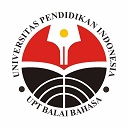Honami's Personality Aspects: A Study on Freud's Psychoanalysis of the Main Figures in Holy Mother's Novel by Akiyoshi Rikako
Abstract
Keywords
Full Text:
PDF FULLTEXTReferences
Ahmad, M. (2011). AGAMA DAN PSIKOANALISA SIGMUND FREUD. Religia, 14(9), 277–296.
Akiyoshi, R. (2016). Holy Mother (聖母). Haru.
Ambarini, R. (2008). Konflik batin Dolour Darcy-Pendekatan Psikoanalisis Freud Terhadap Tokoh Utama Novel Poor Mans’s Orange Karya Ruth Park.
Felman, S., & Laub, D. (1992). Testimony: Crises of witnessing in literature, psychoanalysis, and history. Taylor & Francis.
Syahfitri, N. K. (2017). Analisis Psikologis Tokoh Tanaka Makoto dalam Novel “Holy Mother” Karya Akiyoshi Rikako (Skripsi). Universitas Sumatra Utara.
Nurhayati, H. (2008). ASPEK KEPRIBADIAN TOKOH UTAMA DALAM NOVEL MIDAH, SIMANIS BERGIGI EMAS KARYA PRAMOEDYA ANANTA TOER: TINJAUAN PSIKOLOGI SASTRA (Skripsi). Universitas Muhammadiya Surakarta.
Puteri, A. A. (2017). ANALISIS GEJALA PTSD (POST TRAUMATIC STRESS DISORDER) YANG DIALAMI OLEH TOKOH TANAKA MAKOTO DALAM NOVEL SEIBO KARYA AKIYOSHI RIKAKO (Skripsi). Universitas Darma Persada.
Sembiring, R. H., Herlina., & Attas, S. G. (2018). Kepribadian Tokoh Utama dalam Novel Negeri Para Bedebah Karya Tere Liye Kajian Psikoanalisis Carl. Transformatika: Jurnal Bahasa, Sastra, Dan Pengajarannya, 2(2), 157–172. https://doi.org/10.31002/transformatika.v
Setianingrum, R. (2008). ANALISIS ASPEK KEPRIBADIAN DALAM NOVEL SUPERNOVA EPISODE AKAR KARYA DEWI LESTARI: TINJAUAN PSIKOLOGI SASTRA (Skripsi). Universitas Muhammadiya Surakarta.
Sudikan, S. Y. (2015). Pendekatan interdisipliner, multidisipliner, dan transdisipliner dalam studi sastra. Paramasastra, 2(1).
Wiyatmi. (2011). Psikologi Sastra. Kanwa Publisher.
DOI: https://doi.org/10.17509/japanedu.v4i1.16760
Refbacks
- There are currently no refbacks.
Copyright (c) 2019 JAPANEDU: Jurnal Pendidikan dan Pengajaran Bahasa Jepang

This work is licensed under a Creative Commons Attribution-ShareAlike 4.0 International License.
 Published by:
Published by: Department of Japanese Language Education, Faculty of Language and Literature Education
Universitas Pendidikan Indonesia
 Online ISSN: Online ISSN:2528-5548 |

JAPANEDU: Jurnal Pendidikan dan Pengajaran Bahasa Jepang (e-ISSN:2528-5548) lisenced under a Creative Commons Attribution-ShareAlike 4.0 Internasional (CC BY-SA 4.0)


